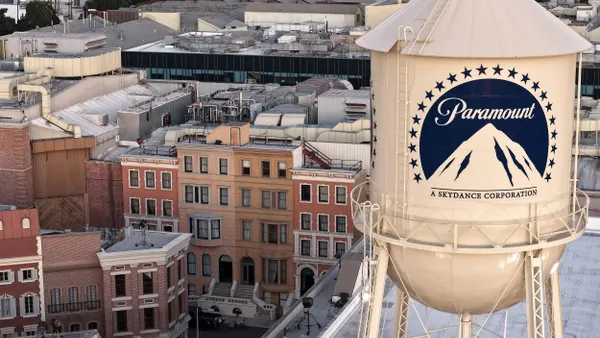Dive Brief:
-
In its second quarter earnings call Monday, meat corporation Tyson Foods said it expects the pandemic to disrupt business for several months, greatly reducing its production output. However, while COVID-19 "has been disruptive," CEO Noel White does not believe it "changes the outlook for a strong future for Tyson Foods."
-
Tyson's overall profit fell 15% in the first quarter. But in the second quarter, sales rose over 4%, to nearly $10.9 billion, with a 4.6% return on sales. "Our balance sheet is sound, and our liquidity position was strong going into the crisis," CFO Stewart Glendinning said.
-
The top U.S. meat supplier has struggled to fulfill orders after the coronavirus forced the closure of some of its plants, executives said on the call. Additionally, it must reroute "millions of pounds of meat each week," as demand moves from restaurants to grocery stores.
Dive Insight:
COVID-19 outbreaks among workers at meatpacking plants have forced closures at Tyson and other meat plants. Last week, Tyson confirmed to Food Dive that two people had died who worked at its Columbus Junction, Iowa, plant, and four at its Camilla, Georgia, factory.
"We're deeply saddened by the loss of team members at our plants. Their families are in our thoughts and prayers," Hector Gonzalez, senior vice president of human resources at Tyson Foods, told Food Dive in an email. "The COVID-19 pandemic has devastated communities in both states and throughout the world."
President Trump enacted a Korean War-era law last week, allowing meat plants to continue operating under the auspices of the U.S. Department of Agriculture, shielding meatpackers from pressure to close, The Wall Street Journal reported.
Due to the uncertainty of the COVID-19 impacts, the degree of absenteeism and the facility closures, Tyson is currently unable to provide segment operating margin guidance, Glendinning said.
"The slowdowns and temporary closures drive higher production costs, and we expect to see those until we resume under more normal conditions," Glendinning said. "Also, our COVID-19 risk mitigation activities have added costs on the broad range of safety measures we have implemented and continued to support."
Despite this, Glendinning says Tyson continues to focus on financial fitness, which has partially offset some of the impact.
"We will continue to seek out opportunities to remove unnecessary costs from our business," Glendinning said. "We expect to deliver profit in the back half of the year, assuming that we can continue to operate and supply our plants."
Stay-at-home mandates across the country abruptly upturned Tyson's business model, with supermarkets suddenly comprising two-thirds of its sales, compared with 45% in normal times. Restaurants, on the other hand, usually comprise around 40% of Tyson's sales, but the pandemic has gutted that business, too.
The surge of supermarket shopping won’t be enough to make up for Tyson's lost restaurant profits, and executives expect continued losses throughout the second quarter. Indeed, "the volume shift from foodservice to retail is likely to be a net negative," Glendinning said. "The major challenge facing us currently is the degree to which our plants are able to operate."
In response to the steep drop in restaurant business, the Journal wrote, Tyson has decided to curtail production, slowing their bird-raising process, and sometimes breaking eggs rather than hatching them.
"Our long-term outlook remains positive," Glendinning concluded. "Our diversified business model allows us to react to [...] major events like COVID-19. Our balance sheet, liquidity, scale, and diversified portfolio of businesses remain strong, and should provide some level of protection as we move through the year."













